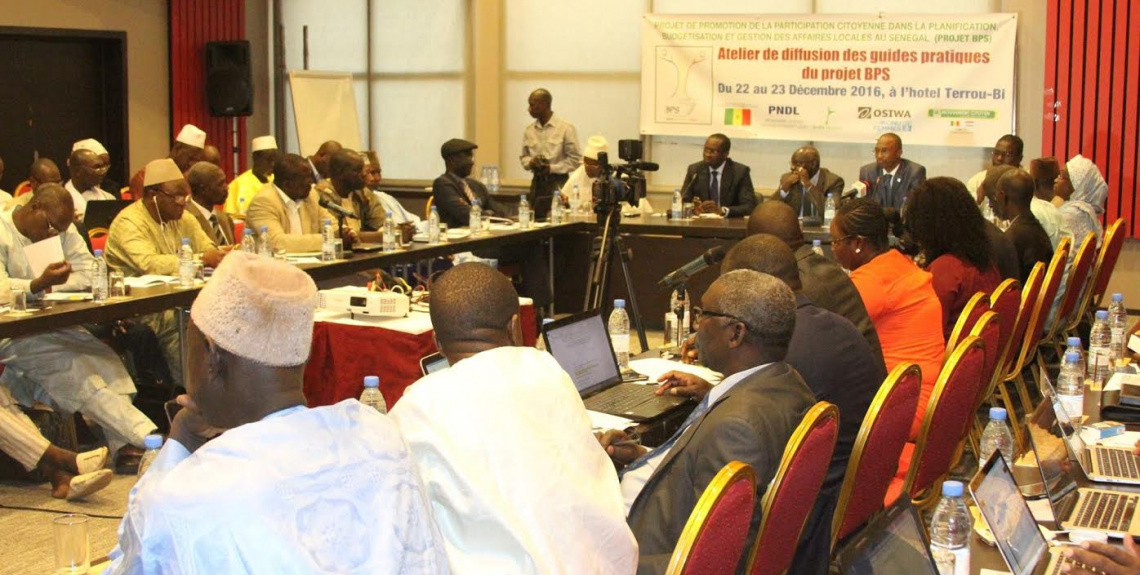Last 22 December, 75 Senegalese elected representatives (Mayors and Presidents of Departmental Councils) signed a Charter of Citizen Participation and Right to the City in the presence of the Cabinet Director of the Ministry of Local Governance, Development and Territorial Management, the National Program for Local Development (PNDL), institutions from the UN system (UN Women), Enda ECOPOP - Focal Point for the African Region of the International Observatory on Participatory Democracy (OIDP-Africa) and other civil society organizations.
Based on concrete engagements and guidelines, the Charter of Citizen Participation and Right to the City is a document that renews the commitment of Senegalese local elected representatives towards citizens.
It commits local governments and departmental councils to set up mechanisms for local participation and multi-stakeholder dialogue in all areas of public policy, and to provide all necessary information to citizens without discrimination, so that they can exercise citizen control over the transparent management of public institutions.
The Charter also commits all actors in the territory to the realization of rights, in particular those of economic, social and cultural nature. This tool strengthens decentralization in Senegalese cities, towns and departments. When adopting it, they are reaffirming the need for public management at the service of the common good and under citizen control.
"Local authorities shall administer the powers delegated to them in the sense of the common good and in a transparent way, in order to meet the tangible and intangible needs of the community. They are obliged to report periodically to citizens on the choices, results, impacts, means and resources of their interventions. Citizens enjoy the right and have the duty to monitor, control, co-manage and evaluate the decision-making processes, the choice of priorities and strategies, the behaviour of public action and the mobilization and use of resources of all kinds"
Inclusive socio-economic development is at the heart of the charter, with a special mention to social and gender equality. Thus, “local authorities foster the promotion of local economies and ensure the delivery of public services both in quantity as in quality. They guarantee equity and fairness in the access of people to socio-economic well-being, particularly for women, young people, people with disabilities and the poorest" (Paragraph 4.3). In turn, “citizens participate in the collective effort to realize economic and social rights, accepting a necessary level of solidarity for social cohesion and political stability to take place in the city”.
These provisions require the adoption of measures such as economic development strategies involving all territorial stakeholders, to strengthen the quality of public services through training activities...
The last part of the charter establishes several engagements and concrete measures to preserve the framework of life and the environment. To that effect, local entities engage in realizing sufficient investments at the service of the well-being and quality of life of all in a balanced way throughout the territory, as well as to ensuring the safety and sanitation of common spaces. Equally, citizens commit to respecting the framework of collective coexistence and the environment.
Explore the Charter of Citizen Participation and the Right to the City
The process of elaboration of the Charter of Citizen Participation and Right to the City was supported by Enda Ecopop, PNDL, OSIWA and UN Women, within the framework of the Project to promote participation and citizen engagement in planning, budgeting and management of local affairs in Senegal (BPS Project). A phase of dissemination and popularization of the charter is now opening in territories that have adopted it.


